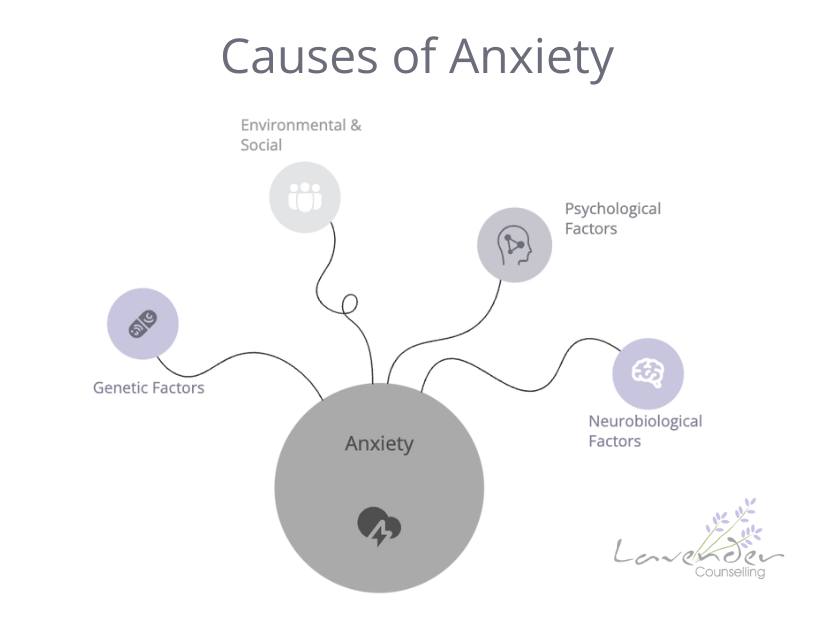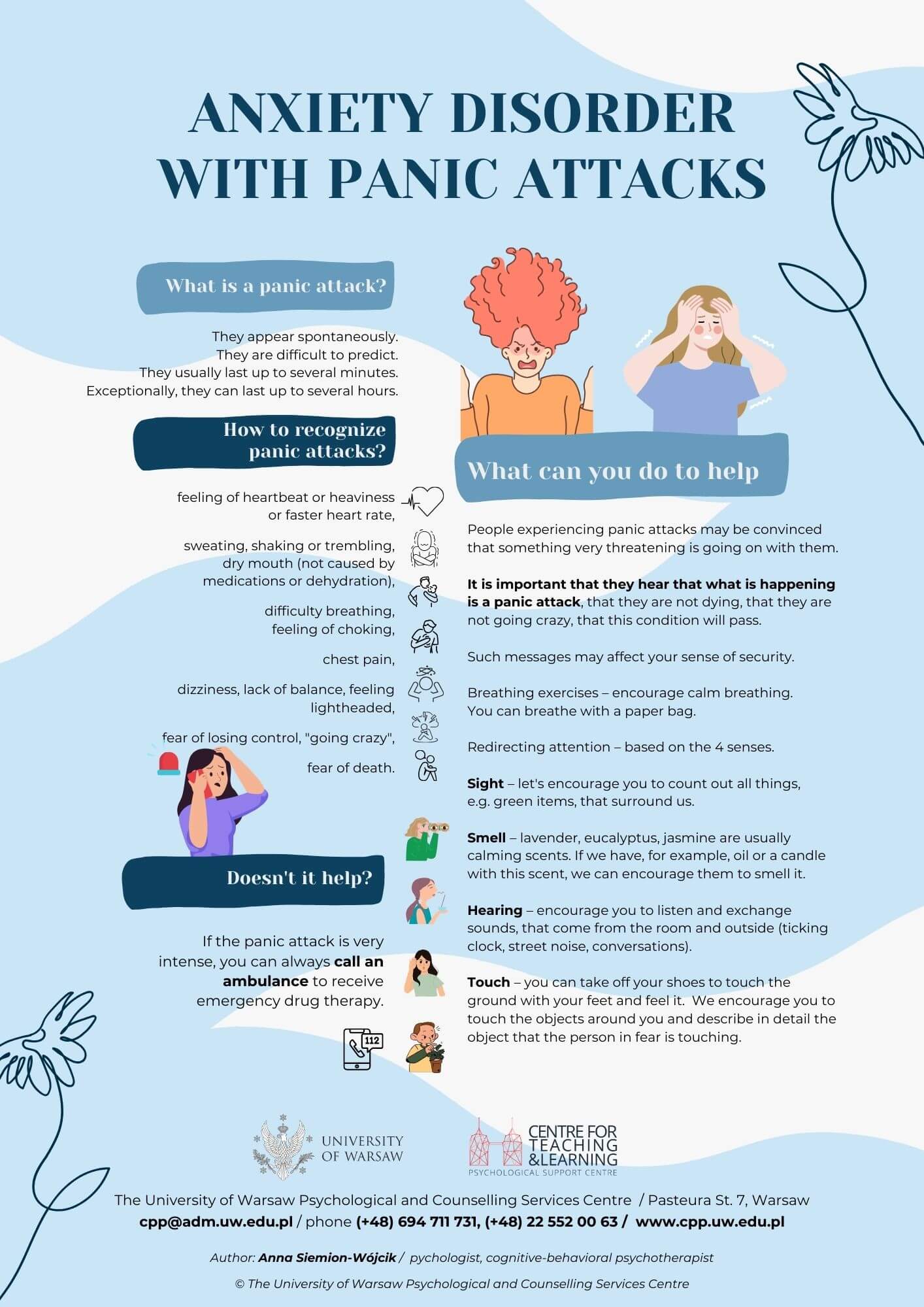How a licensed therapist for anxiety can help you handle daily stress
How a licensed therapist for anxiety can help you handle daily stress
Blog Article
Discovering Various Strategies in Coaching for Anxiousness Problem for Long Lasting Adjustment
When tackling stress and anxiety problems, it's vital to check out a range of counseling approaches. Each approach provides unique insights and tools to assist you manage your signs successfully. You might find that incorporating strategies can generate the most effective outcomes. However, recognizing the subtleties of these approaches is key to fostering long-term adjustment. Suppose the best combination could launch a new degree of psychological health for you?
Recognizing Stress And Anxiety Conditions: A Brief Overview
Anxiousness conditions, which influence numerous people worldwide, can significantly impact day-to-day life. You might experience frustrating feelings of worry or worry that appear uncontrollable. These sensations can lead to physical symptoms like an auto racing heart, sweating, or perhaps wooziness. Typical types of anxiety conditions include generalised anxiety disorder, panic condition, and social anxiety condition. Each has unique indicators, yet they all share a tendency to interrupt your routine and relationships.Understanding the origin of your stress and anxiety is essential. It may originate from genetics, mind chemistry, or life experiences. Acknowledging your triggers can aid you manage your actions better. It is essential to keep in mind that you're not the only one in this battle. Lots of people encounter similar difficulties, and seeking aid is a strong step towards sensation better. By finding out about anxiousness conditions, you're currently on the course to understanding and handling your condition better.
Cognitive-Behavioral Treatment: Challenging Negative Thought Patterns
In Cognitive-Behavioral Therapy, you'll begin by determining the adverse idea triggers that add to your stress and anxiety. When you identify these ideas, you'll work on replacing them with more positive options. Together, you'll develop efficient coping approaches to help manage your stress and anxiety in day-to-day scenarios.
Identifying Negative Thought Triggers

Recognizing the specific triggers behind your adverse ideas can be necessary in handling stress and anxiety when you come across moments of distress. Start by paying interest to scenarios that prompt sensations of concern or concern. Is it a congested area, an upcoming target date, or a discussion with specific people? Write these instances in a journal. This will help you recognize patterns in your reasoning. Notice physical feelings that accompany your unfavorable thoughts, like an auto racing heart or tightness in your chest. By pinpointing these triggers, you gain understanding into what's sustaining your anxiety. Recognizing these links is the first action in testing those thoughts and ultimately reclaiming control over your psychological responses.
Changing Ideas With Positives
Testing unfavorable idea patterns is a crucial step in transforming your mindset and reducing anxiousness. You may frequently locate on your own trapped in cycles of insecurity or tragic thinking. Rather than allowing these ideas dictate your sensations, technique replacing them with realistic options or positive affirmations. As an example, when you believe, "I can not manage this," change it to, "I can take care of obstacles one step at once." This straightforward change can greatly affect your mood. Regularly recognizing and countering these negative thoughts helps produce a healthier inner discussion. Bear in mind, it requires time and initiative, yet regularly practicing this strategy can bring about enduring change, empowering you to face anxiousness with restored self-confidence and strength.
Structure Coping Techniques Together
Replacing negative thoughts is only the start of managing anxiousness effectively. To create long lasting modification, you need to construct coping methods that encourage you. Cognitive-Behavioral Therapy (CBT) assists you recognize and test those purposeless thought patterns. With each other, you and your therapist can discover just how these ideas effect your sensations and behaviors.Start by developing useful strategies, like journaling or mindfulness exercises, that enable you to confront anxiety head-on. When you face your concerns gradually, you'll learn to respond in a different way.

Mindfulness and Acceptance-Based Approaches: Growing Present-Moment Awareness
As you browse the intricacies of stress and anxiety, incorporating mindfulness and acceptance-based techniques can considerably enhance your capability to grow present-moment awareness. By concentrating on the present moment, you'll locate that you can observe your ideas and feelings without judgment (Counseling services for anxiety). This method assists you recognize your anxiousness without really feeling overwhelmed by it.Engaging in mindfulness exercises, such as deep breathing, body scans, or directed reflections, permits you to ground on your own in your current experience. Acceptance-based strategies motivate you to embrace your feelings instead of combat against them. They shed their power over you.Incorporating these methods right into your daily routine can change exactly how you respond to anxiety when you approve your feelings. You'll develop resilience and find out to navigate difficult circumstances with better convenience. Ultimately, cultivating present-moment understanding lays the structure for lasting change, encouraging you to lead a more satisfying life
Exposure Treatment: Facing Concerns Progressively
Direct exposure therapy aids you challenge your concerns in a gradual means, making it much less frustrating. You'll find out strategies to deal with anxiety-provoking scenarios step by step, while also constructing coping methods to handle your reactions. This approach empowers you to take control and minimize anxiousness gradually.
Gradual Direct Exposure Methods

When dealing with anxiousness, slowly challenging your worries can be a powerful method to reclaim control. This strategy, referred to as progressive exposure, entails gradually exposing on your own to the scenarios or objects that activate your stress and anxiety. Start with less challenging circumstances and slowly function your means up to more tough ones. If you're worried of public speaking, you may begin by talking in front of a mirror, then advance to sharing ideas with a close friend, and at some point address a tiny team. Each action helps desensitize you to the concern, developing your self-confidence with time. Remember, it's vital to speed yourself and commemorate little triumphes as you relocate through this procedure, reinforcing your capacity to take care of anxiousness effectively.
Building Coping Approaches
Building reliable coping techniques is vital for handling stress and anxiety, especially as you face your fears progressively - Counseling services for anxiety. One powerful method is exposure therapy, where you start by encountering your fears in a regulated fashion. Start with click here less daunting scenarios and gradually work your way approximately more difficult circumstances. This gradual direct exposure assists desensitize you to stress and anxiety activates, making them much less overwhelming.Incorporate relaxation techniques, such as deep breathing or mindfulness, to soothe your mind during exposure. Track your development, celebrating little success along the means to enhance your self-confidence. Remember, it's alright to take your time; the objective isn't excellence however steady improvement. By constructing these approaches, you'll equip on your own to browse stress and anxiety and accept life a lot more completely
Psychodynamic Treatment: Revealing Origin of Anxiety
Psychodynamic therapy explores the subconscious mind, revealing the origin creates of your anxiousness. By analyzing your thoughts, sensations, and previous experiences, this method helps you reveal underlying problems and unresolved problems that might add to your existing anxiety. You'll deal with a specialist to investigate youth experiences, partnerships, and psychological patterns that form your reactions today.As you acquire understanding right into these deeper layers of your mind, you'll start to identify how past occasions affect your existing habits. This understanding can result in catharsis, permitting you to refine emotions you might have suppressed.Through the restorative partnership, you can additionally identify defense reaction that might have developed with time, offering a more clear course to change. Eventually, psychodynamic treatment outfits you with the devices to resolve your anxiety at its core, advertising lasting improvement in your emotional health.
Integrative and Holistic Techniques: Integrating Techniques for Greater Efficiency
Incorporating various restorative methods can boost your journey toward taking care of anxiety better. By incorporating elements from cognitive-behavioral treatment, mindfulness techniques, and alternative approaches, you can produce an individualized strategy that addresses your one-of-a-kind requirements. As an example, you might utilize cognitive-behavioral techniques to challenge negative idea patterns while integrating mindfulness exercises to ground yourself in the here and now moment.Additionally, checking out all natural practices such as yoga or meditation can promote relaxation and reduce anxiousness signs and symptoms. This mix permits you to develop greater self-awareness and resilience.Experimenting with these diverse methods can help you find what reverberates most with you. Bear in mind, it has to do with finding a harmony that functions, rather than sticking to a solitary method. This integrative approach not just supplies prompt relief however likewise fosters long-lasting abilities for managing anxiousness, encouraging you to redeem control over your life.
The Role of Assistance Solutions: Building Resilience Via Connection
While it could appear that taking care of anxiousness is a singular journey, having a solid support group can play a crucial duty in your resilience. Bordering yourself with compassionate close friends, household, or support teams produces a safe area where you can freely share your feelings and experiences. When you get in touch with others, you advise on your own that you're not the only one in this struggle.These relationships supply encouragement and can provide practical coping techniques that have helped others. It's additionally an opportunity to gain perspective; close friends can assist you see scenarios differently, reducing sensations of isolation.Moreover, psychological support promotes a sense of belonging, which can greatly reduce stress and anxiety signs and symptoms. By leaning on your assistance system, you can develop strength and tackle difficulties better. Bear in mind, connecting for help suggests strength, and it can make all the distinction in your journey toward handling anxiety.
Regularly Asked Concerns
What Are the Typical Signs And Symptoms of Anxiousness Disorders?
You may experience uneasyness, exhaustion, problem focusing, irritation, muscular tissue tension, and rest disturbances. Physical symptoms can include rapid heart beat, sweating, and trembling. Acknowledging these indicators early can aid you seek suitable support and treatment.
The Length Of Time Does Therapy Generally Last for Anxiousness Problems?
Therapy for anxiousness conditions normally lasts anywhere from a few weeks to numerous months. It truly depends on your specific requirements, development, and the techniques your therapist makes use of to assist you manage your anxiety effectively.
Can Drug Be Utilized Together With Therapy for Stress and anxiety?
Yes, medication can absolutely be made use of alongside therapy for anxiety. Combining both methods commonly enhances therapy efficiency, helping you handle signs and symptoms while discovering underlying problems with counseling (Counseling services for anxiety). Always consult your health care supplier for personalized recommendations
Exist Self-Help Methods for Taking Care Of Anxiousness?
Yes, there are numerous self-help strategies for managing anxiety. You can exercise mindfulness, involve in normal workout, keep a balanced diet regimen, establish a routine, and make use of deep breathing methods to help in reducing anxiousness symptoms successfully.
Exactly how Do I Know if I Need Specialist Help for Stress And Anxiety?

Report this page